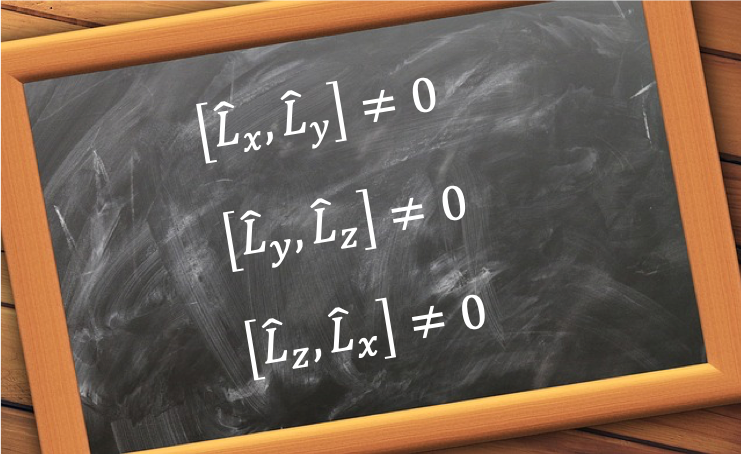The three orbital angular momentum component operators do not commute with one another.

To show that , we substitute eq72 and eq73 in
, giving
, which when combined with eq74, returns
Repeating the above procedure for and
, we get
Hence, each of the three orbital angular momentum component operators do not commute with the other two. Next, to show that commutes with all 3 orbital angular momentum component operators, we begin with
Using the identity ,
Substituting eq99 and eq101 in the above equation, and noting that , yields
. Repeating the steps for
and
gives
As mentioned in an earlier article, a common complete set of eigenfunctions can be selected for two operators only if they commute. Therefore, shares a common set of eigenfunctions with each of
,
and
, but we cannot select a common set of eigenfunctions for any pair of angular momentum component operators.

Question
Show that each of the three orbital angular momentum component operators commute with ,
,
,
and
, where
and
.
Answer
Substituting eq74 in ,
,
,
,
and
(noting that
, where
), and carrying out the derivatives, yields
Using the identities and
,
can be inferred from eq103. Repeating the same logic for
and
. we have
The commutation relations in the above Q&A are applicable to hydrogenic systems. For a system of 2-electrons, there are cross terms like:
which are useful in determining the commutation relations between and the multi-electron Hamiltonian, for example
.